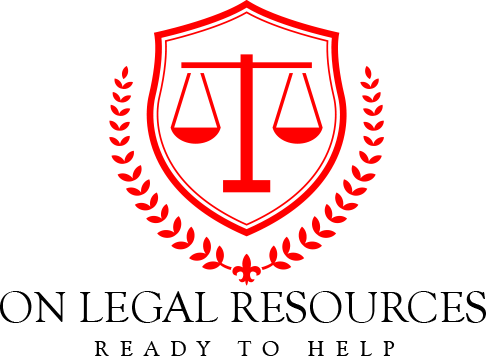
Working in a pharmacy offers a wide range of career opportunities beyond the role of a pharmacist. From assisting customers to managing operations, there are numerous positions that contribute to the efficient running of a pharmacy. This guide explores the various career paths available in a pharmacy setting, detailing the roles, responsibilities, and requirements for each. For more detailed information, you can visit pafikotakapuas.org.
Pharmacist
Role and Responsibilities
Dispensing Medications
Pharmacists are responsible for accurately dispensing prescription medications to patients, ensuring the correct dosage and administration instructions.
Patient Counseling
Pharmacists provide essential advice and information to patients about their medications, including potential side effects and interactions with other drugs.
Clinical Services
In some settings, pharmacists offer clinical services such as medication therapy management, immunizations, and health screenings, playing a crucial role in patient care.
Education and Training
Doctor of Pharmacy (Pharm.D.)
To become a pharmacist, you need to complete a Doctor of Pharmacy (Pharm.D.) program, which typically requires four years of professional study.
Licensure and Certification
Pharmacists must pass the North American Pharmacist Licensure Examination (NAPLEX) and the Multistate Pharmacy Jurisprudence Examination (MPJE) to practice. Additional certifications may be required for specialized areas.
Pharmacy Technician
Role and Responsibilities
Assisting Pharmacists
Pharmacy technicians assist pharmacists in dispensing medications, managing inventory, and performing administrative tasks.
Preparing Prescriptions
Technicians prepare and label prescriptions, ensuring accuracy and compliance with regulations.
Customer Service
Pharmacy technicians handle customer inquiries, process transactions, and provide information on over-the-counter medications.
Education and Training
Certification Programs
Many pharmacy technicians complete certification programs that provide the necessary training and skills for the role. Certification may be required by state regulations.
On-the-Job Training
Some pharmacy technicians receive on-the-job training, gaining experience under the supervision of pharmacists and experienced technicians.
Pharmacy Assistant
Role and Responsibilities
Supporting Staff
Pharmacy assistants support pharmacists and pharmacy technicians by performing clerical and administrative tasks, such as answering phones, stocking shelves, and managing patient records.
Customer Interaction
Assistants interact with customers, help them find products, and assist with inquiries about over-the-counter medications.
Inventory Management
They help manage inventory by organizing stock, checking expiration dates, and assisting with orders.
Education and Training
High School Diploma
A high school diploma or equivalent is typically required for this position. On-the-job training is usually provided.
Pharmacy Manager
Role and Responsibilities
Overseeing Operations
Pharmacy managers oversee the daily operations of the pharmacy, ensuring compliance with regulations and policies.
Staff Management
They manage pharmacy staff, including hiring, training, and scheduling, to ensure efficient workflow and high-quality service.
Financial Management
Pharmacy managers are responsible for budgeting, financial reporting, and managing the pharmacy’s profitability.
Education and Training
Advanced Experience
Pharmacy managers usually have several years of experience as pharmacists, along with strong leadership and management skills.
Additional Education
Some managers may pursue additional education in business administration or healthcare management to enhance their skills.
Clinical Pharmacist
Role and Responsibilities
Patient Care
Clinical pharmacists work directly with healthcare teams to develop and manage medication therapy plans for patients, ensuring optimal therapeutic outcomes.
Specialized Services
They provide specialized services, such as chronic disease management, medication therapy management, and patient education.
Research and Education
Clinical pharmacists may also be involved in research, teaching, and developing clinical guidelines and protocols.
Education and Training
Residencies and Fellowships
Clinical pharmacists often complete residencies or fellowships to gain specialized training and experience in clinical pharmacy practice.
Board Certification
Board certification in a specialty area, such as ambulatory care or oncology, may be pursued to demonstrate expertise and enhance career opportunities.
Pharmaceutical Sales Representative
Role and Responsibilities
Promoting Products
Pharmaceutical sales representatives promote and sell medications and healthcare products to healthcare providers, pharmacies, and hospitals.
Building Relationships
They build and maintain relationships with healthcare professionals, providing product information and support.
Market Analysis
Sales representatives analyze market trends, develop sales strategies, and track the performance of their products.
Education and Training
Bachelor’s Degree
A bachelor’s degree in a relevant field, such as life sciences, business, or marketing, is typically required.
Sales Training
Many companies provide specialized sales training programs to equip representatives with the knowledge and skills needed for success.
Pharmacy Informatics Specialist
Role and Responsibilities
Managing Information Systems
Pharmacy informatics specialists manage and optimize pharmacy information systems, ensuring the accurate and efficient handling of medication data.
Integrating Technology
They work on integrating technology solutions, such as electronic health records (EHR) and computerized physician order entry (CPOE) systems, into pharmacy operations.
Data Analysis
Informatics specialists analyze data to improve medication safety, enhance patient care, and support decision-making processes.
Education and Training
Advanced Degrees
A degree in pharmacy, computer science, or health informatics is typically required. Additional certifications in health informatics may be beneficial.
Technical Skills
Strong technical skills and experience with healthcare information systems are essential for this role.
Conclusion
Pharmacies offer a variety of career paths, each with its own set of responsibilities and requirements. Whether you’re interested in direct patient care, administrative roles, or technical specialties, there are numerous opportunities to build a fulfilling career in the pharmacy industry. Understanding the different roles and pursuing the necessary education and training can help you find the right fit and achieve success in your chosen career.
